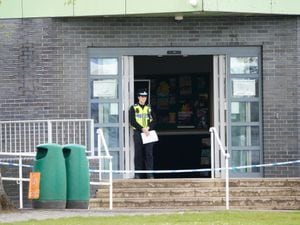Northern Ireland Protocol: Key questions answered
Inspections required by new Irish Sea trading arrangements have been suspended amid fears for the safety of staff.
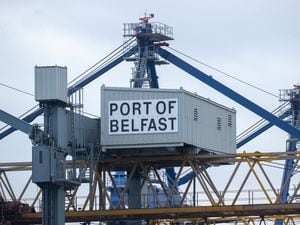
Brexit inspections have been suspended at ports in Belfast and Larne amid concerns over mounting loyalist anger about the Northern Ireland Protocol and the operation of an Irish Sea trade border.
Here are answers to some of the main questions about the protocol and why it is so controversial.
– What is the protocol?
It was how the EU and the UK overcame the main sticking point in the Brexit withdrawal talks: the Irish border.
To avoid disrupting cross-border trade and a return of checkpoints along the politically sensitive frontier, they essentially agreed to move new regulatory and customs processes to the Irish Sea.
That means the checks are now focused on trade between Great Britain and Northern Ireland, with goods continuing to move freely within the island of Ireland.
Trade between Northern Ireland and Great Britain is largely unaffected by the protocol.
The red tape applies on movement in the other direction. Since December 31, a range of regulatory animal and plant safety checks have been in operation, including physical inspections for a proportion of arriving freight at new port facilities.
Customs declarations are also required for incoming commercial goods.
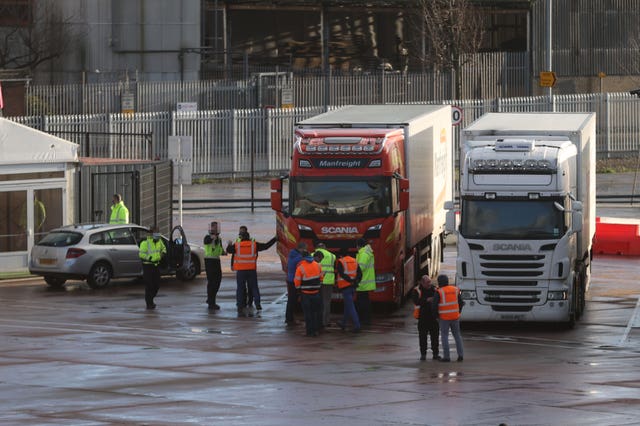
– How does the protocol work?
Northern Ireland remains in the EU single market for goods. The region also applies EU customs rules at its ports, even though it is still part of the UK customs territory.
The protocol also sees Northern Ireland follow certain EU rules on state aid and VAT on goods.
– Why are unionists and loyalists unhappy about it?
They believe the protocol has created a barrier between the region and the rest of the UK, undermining the constitutional integrity of the Union.
The annoyance is on two levels – practical and symbolic.
They highlight that GB is Northern Ireland’s biggest trading partner and the protocol is damaging those economic links.
There has undoubtedly been disruption in the early weeks of the protocol, evidenced by depleted supermarket shelves, as many traders have encountered problems shipping goods across the Irish Sea.
Every piece of evidence of disrupted trade feeds loyalist fears that a wedge has been driven between Northern Ireland and the rest of the UK, with the protocol forcing an economic reorientation with the Irish Republic.
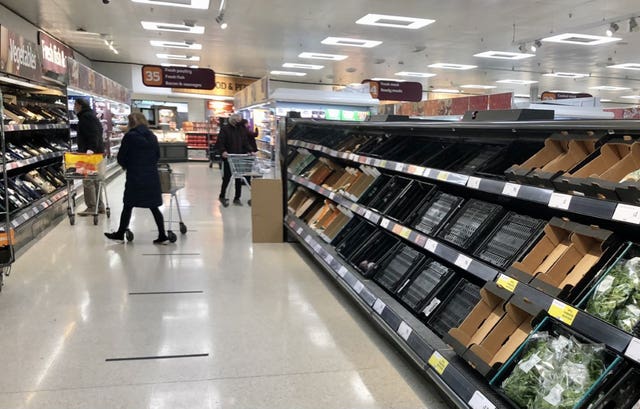
– How has the anger manifested itself?
Unionist politicians are demanding that the UK Government intervene to either address issues with the protocol or ditch it completely.
They have called on the Prime Minister to trigger a mechanism within the protocol – Article 16 – to unilaterally suspend aspects of its operation to enter fresh negotiations with the EU on the problems.
Away from the political sphere, police have raised concerns over simmering discontent within the loyalist community.
Commanders have pointed to sinister graffiti warning off port inspectors, and menacing commentary online.
It remains unclear whether this activity is the work of discontented individuals or linked to loyalist paramilitary groups.
With Northern Ireland in the midst of a Covid-19 lockdown, there has been no evidence of physical protests. Officers have said this may change when restrictions ease.
With Boris Johnson having previously pledged never to put economic barriers in the Irish Sea, unionists and loyalists view the protocol as a “betrayal” of the Brexit they wanted.
They feel the whole of the UK has not left the EU on the same terms, with Northern Ireland left behind, partially trapped within European structures.
All this is playing out in a year that Northern Ireland marks the centenary of its foundation and as republicans continue to press for a referendum on Irish unity.
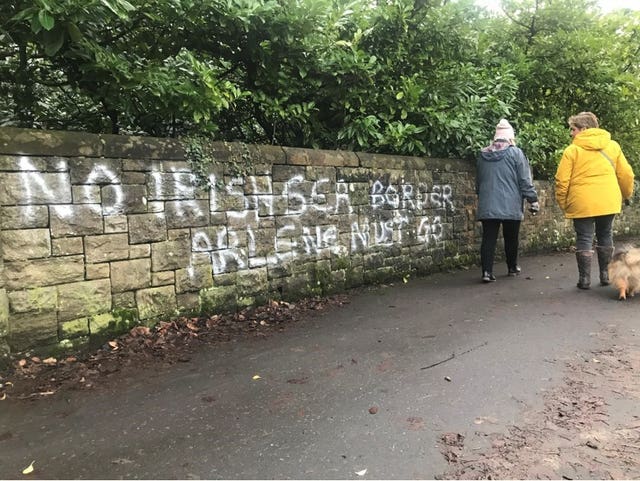
– What about the DUP?
The DUP has been at pains to distance itself from the protocol, making clear it voted against it at Westminster.
However, that has not stopped criticism from unionist rivals who claim the party is culpable for the situation Northern Ireland is in.
They cite the influence the DUP wielded when it entered a confidence and supply deal with the Conservatives in 2017 and accuse it of failing to deliver a Brexit that treated the region the same as the rest of the UK.
Speculation around internal party discontent over Arlene Foster’s leadership continues while a lot of the protocol graffiti has been accompanied by anti-DUP slogans, some of which have been daubed on the offices of its elected representatives.
– How is this linked to the EU’s move to control the export of Covid vaccines?
Tensions over the protocol have been heightened following the controversial events of last Friday when the European Commission was forced to backtrack on a threat to suspend part of the protocol – using Article 16.
The botched move by the EU would have struck at the heart of the protocol’s main function – to facilitate a free-flowing Irish border – by placing restrictions on vaccines moving into Northern Ireland from the bloc.
While the EU stepped back from the brink, after an evening of frantic diplomacy, the episode further angered loyalists and unionists and emboldened them to press their demands for an end to the protocol.
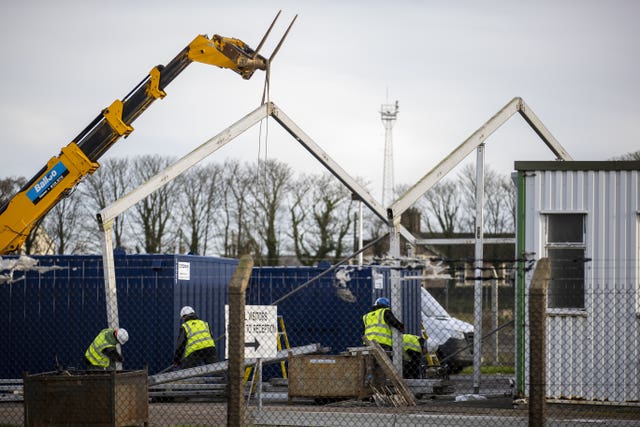
– Is the protocol fully operational?
No. A range of grace periods have been rolled out to limit Brexit bureaucracy in the initial months of operation.
Supermarkets and other food retailers have been given three months to adjust to the new food checks.
From April 1, they will need to produce export health certificates for every animal-based food product they ship to Northern Ireland. For the first three months only one all-encompassing certificate is required per consignment of goods.
Some products are to be prohibited from entering Northern Ireland at all under single market rules. Sausages and other chilled meats, which are on that banned list, have been granted a specific six-month grace period to enable their import from GB to continue until June, using temporary certificates.
There is also a three-month grace period that means the majority of parcels sent to Northern Ireland from GB do not need customs declarations. Again, that will change in April.
The protocol will also put restrictions on the movement of pets between GB and NI, including the need for rabies vaccines. Those restrictions will not come into place until the summer.
In regard to the movement of medicines from GB to NI, there is a 12-month grace period in place, with new regulatory processes due in 2022.
While the UK and EU are involved in talks to find ways of limiting the extent of red tape that will be required when all the grace periods lapse, there is little doubt the bureaucracy associated with the protocol is only set to increase as 2021 goes on.




